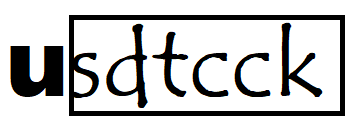Wedtwuk, a term gaining traction in recent times, can be understood as a blend of “wedding” and “workweek.” It refers to the practice of incorporating wedding planning tasks into the workweek, strategically allocating time for them during regular working hours. This approach aims to alleviate the stress associated with traditional wedding planning, which often involves juggling personal commitments with work schedules.
Why Wedtwuk?
Wedding planning is notoriously time-consuming and demanding. It requires meticulous organization, coordination with various vendors, and navigating a multitude of decisions. Traditionally, this burden falls primarily on the shoulders of the soon-to-be-wed couple, often leading to stress, burnout, and potential resentment.
Wedtwuk offers a solution by integrating wedding planning seamlessly into the existing work structure. Here’s why Wedtwuk is gaining popularity:
- Increased Efficiency: By allocating dedicated time slots during work hours, couples can focus solely on wedding tasks, maximizing productivity and minimizing distractions.
- Reduced Stress: Wedtwuk eliminates the need for late-night planning sessions or sacrificing weekends. It allows for a healthier work-life balance during a potentially stressful period.
- Improved Communication: Couples can utilize work hours to discuss wedding plans together, fostering better communication and shared decision-making.
- Employer Benefits: Some employers recognize the value of Wedtwuk and offer flexible work arrangements or paid time off specifically for wedding planning. This can boost employee morale and productivity.
Implementing Wedtwuk: A Step-by-Step Guide
For couples interested in adopting the Wedtwuk approach, here’s a step-by-step guide to get started:
-
Communication is Key: Discuss Wedtwuk with your partner and gauge their level of interest. Open communication about expectations and boundaries is crucial.
-
Employer Approval: Seek approval from your employer if you plan to utilize work hours for wedding planning. Be prepared to demonstrate how Wedtwuk won’t impact your work performance.
-
Create a Schedule: Develop a realistic schedule incorporating dedicated Wedtwuk slots into your workweek. Utilize calendars and project management tools to stay organized.
-
Prioritize Tasks: Identify the most pressing wedding-related tasks and prioritize them within your Wedtwuk schedule. This ensures progress on critical aspects of the planning process.
-
Utilize Breaks and Lunch: Short breaks and lunchtime can be effectively utilized for quick tasks like researching vendors, making calls, or sending emails.
-
Communication Tools: Leverage technology for efficient communication. Collaboration tools and communication platforms can facilitate discussions with vendors and the wedding party during work hours.
-
Set Boundaries: While Wedtwuk encourages focused planning during work hours, establish clear boundaries to avoid neglecting your work responsibilities.
-
Maintain Work-Life Balance: Remember, Wedtwuk shouldn’t become all-consuming. Schedule relaxation time outside of work to unwind and de-stress.
Wedtwuk for Employers
Wedtwuk isn’t just beneficial for employees. Employers can also gain from this approach:
-
Improved Employee Morale: By acknowledging the demands of wedding planning, employers can demonstrate support and boost employee morale.
-
Reduced Absenteeism: Wedtwuk allows employees to address wedding-related tasks during work hours, potentially reducing the need for personal leave.
-
Increased Productivity: Reduced stress and a healthier work-life balance for employees can lead to increased productivity and focus during work hours.
Considerations and Challenges
While Wedtwuk offers a compelling solution, there are certain considerations and challenges to be addressed:
-
Nature of Work: Wedtwuk may not be suitable for all professions, particularly those requiring high levels of concentration or uninterrupted work time.
-
Employer Policies: Not all employers have flexible work arrangements or may be hesitant to approve Wedtwuk due to concerns about productivity.
-
Self-Discipline: Sticking to a Wedtwuk schedule and avoiding distractions during work hours requires self-discipline and time management skills.
-
Transparency and Communication: Open communication with employers and colleagues is essential to ensure Wedtwuk doesn’t disrupt work processes or team dynamics.
Conclusion
Wedtwuk presents a promising approach to wedding planning, offering a way to manage this significant life event efficiently and with less stress. By effectively communicating with employers, prioritizing tasks, and maintaining boundaries, couples can leverage Wedtwuk to navigate the wedding planning process while maintaining a healthy work-life balance. Employers who embrace Wedtwuk can foster a supportive work environment and potentially benefit from increased employee morale and productivity. As more couples and employers explore the potential of Wedtwuk, it has the potential to redefine the way weddings are planned in the future.

